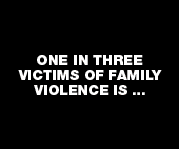The Soul
 Thursday, September 5, 2024 at 9:00AM
Thursday, September 5, 2024 at 9:00AM 
With special guest:
-
Paul Ham
… in conversation with Bill Kable
Our topics do not come much bigger or more interesting than The Soul: A History of the Human Mind written by our guest today Paul Ham. Certain ideas come to mind when we mention the word “Soul”. Are we talking about soul music or the definition in the catechism or maybe the soul of America which was said to be lost during the Vietnam war?
Paul tells us that the soul can mean all of these things and more. Paul has tackled a topic which is huge in breadth and also extended over the millennia to the beginnings of civilisation. His discovery is that what humans first called the soul was originally thought to be a part of all of us. The soul survived the death of the body and then ventured to an underworld which might be Heaven or Hell. Some Christians believed at one stage that there was also a halfway house called Purgatory but that has disappeared in more recent beliefs. In fact the soul itself disappeared mysteriously during the period called the enlightenment until we arrive where we are today and scientists tell us that the mind is a creation of the brain.
In this book Paul Ham restores the idea of a soul to the human story but not as something that can be located as a separate organ or entity. Instead Paul shows us how belief in, and beliefs arising from the soul or mind, have animated and driven the history of our kind.
Some examples of this driving force would include the policies of Mao Tse Tung in China where millions and millions of his people died because of one man’s faith in collectivisation. Interestingly the rise of Nazism causing 6 million deaths in the Jewish holocaust did not lead to a condemnation of the Jewish founder of Christianity. Hitler never criticised Jesus. And we discuss some very modern examples such as the war in Ukraine and the fighting in Gaza. At another level we can see the rise of the gay/lesbian culture and feminism.
After writing many books on war topics Paul has chosen to explore the deeper questions relating to how history works. We can understand how in just a few short years Australians have gone from seeing Japan as the enemy who tortured our soldiers in prisoner of war camps to the current situation where Australians love visiting Japan and appreciating their culture. The change has come about because the beliefs of the human mind/soul are the engines of the human story.
Paul Ham
Paul Ham is the author of 12 books, including Passchendaele: Requiem for Doomed Youth (2016), 1914: The Year the World Ended (2013), Hiroshima Nagasaki (2011), Vietnam: The Australian War (2007) and Kokoda (2004).
Hiroshima Nagasaki was shortlisted for the Prime Minister’s Literary Award for History and is being made into a 6-part TV series by an American-British-Australian production team.
A former Sunday Times correspondent, with a Master’s degree from the London School of Economics, Paul lives in Paris and devotes his time to writing history and (when possible) to teaching Narrative History at Sciences Po, France’s preeminent tertiary school for the humanities.
Song selection by our guest: Mon Amie La Rose by Françoise Hardy


